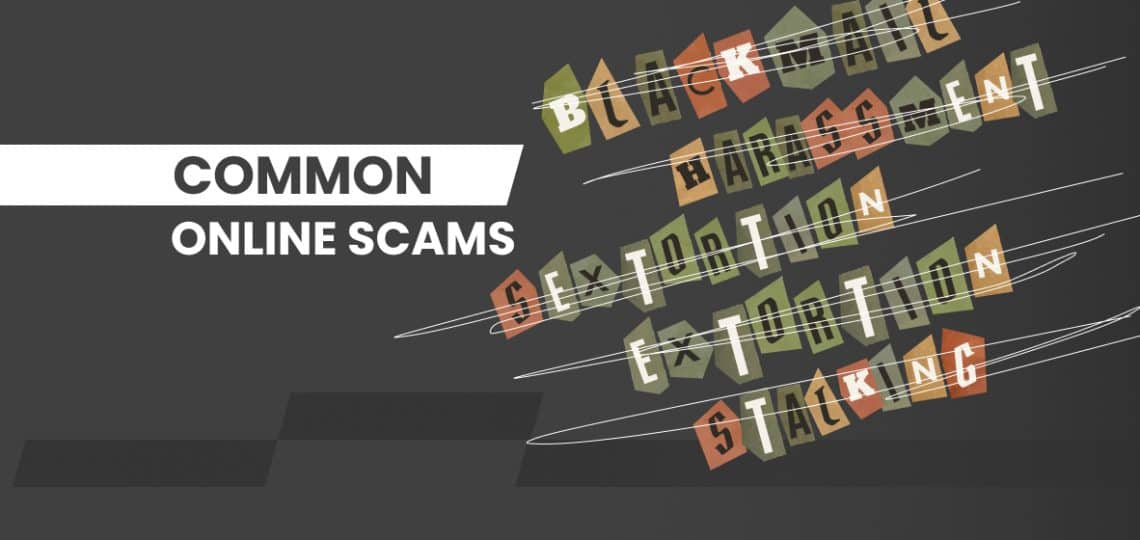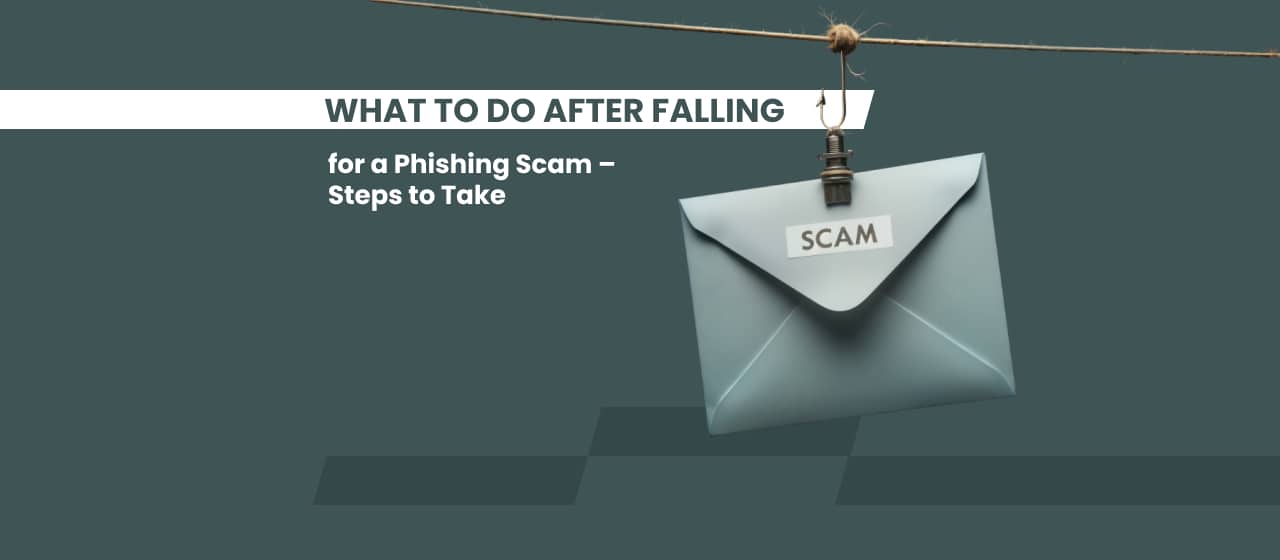Online scams have become something of an industry for cybercriminals, and business is booming. In fact, there was a record $16.6 billion in losses reported to the FBI in 2024. A Pew Research Center survey found that one-in-five U.S adults have lost money due to online scams. These numbers indicate that more people are losing more money than ever before. Because of this, it’s crucial for all internet users to know how to deal with online scams.
Common Types of Online Scams
The landscape of online scams is almost inconceivably vast. If there is a possible way to deceive someone online, there’s likely a scammer looking to profit from it. However, the following scams are most frequently reported to our experts.
Online Scam Schemes
- Online Extortion. This is a broader type of scam that encompasses blackmail and sextortion. It involves using threats or force to acquire goods, favors, or services.
- Online Blackmail. Blackmail is a specific subcategory of extortion. It involves leveraging compromising personal information to coerce an individual’s behavior.
- Sextortion. This is a form of blackmail in which the leverage consists of intimate images or videos. The name is an abridged version of the term “sexual extortion”.
- Online Blackmail. Blackmail is a specific subcategory of extortion. It involves leveraging compromising personal information to coerce an individual’s behavior.
Behavioral Patterns and Independent Crimes
- Cyber Harassment. This consists of repeated online behavior that is intended to cause distress. Cyber harassment is often utilized in extortion schemes to pressure the victim.
- Cyberstalking. This is a type of harassment that involves unwanted and unrelenting surveillance or contact with the victim. Scammers often stalk their targets to gain intel and tailor their attack.
It’s worth noting that cyber harassment and cyberstalking are typically treated as independent crimes in the eyes of the law. We are instead highlighting their interconnected use by cybercriminals.
How to Deal with Common Online Scams
It’s best to understand how to deal with an online scam before you are faced with an active threat. Scams progress quickly, so you need to act fast. However, the wrong response is often more detrimental than no response at all. The process is largely the same across scams, but there are unique nuances to each that require a specific approach. Our experts have provided a guideline for dealing with various online scams below.
How to Deal with Online Extortion
Being extorted is one of the scariest online experiences one could face. The most important factor is remaining calm despite their threats and scare tactics. This is a major reason that working with cyber security experts can be such a help. Their assistance and expertise can alleviate some of the pressure of the situation. Some other things to consider include the following.
- Do not pay the blackmailer or comply with their demands.
- Avoid blocking the blackmailer and deleting evidence using delay tactics.
- Document evidence of the crime and save the data securely.
- Report the incident to the service provider and law enforcement agencies.
You can get a more detailed description by reading our article on dealing with online extortion.
How to Deal with Online Blackmail
As a subcategory of extortion, dealing with online blackmail is much the same. The blackmailer is utilizing threats and deadlines to try to elicit a rash response. You need to respond quickly, and here’s how our experts advise you deal with online blackmail.
- Update your passwords on any accounts that may be compromised to prevent the blackmailer from gaining more information.
- Run a reputable malware detection software on your device to identify any malicious programs that may be running.
- Seek support, whether it be from someone you trust in your personal life or a professional.
For a more in-depth breakdown, check out our article dedicated to dealing with online blackmail.
How to Deal with Sextortion
Sextortion is one of the most personal forms of blackmail — also making it one of the most potentially damaging. Having your intimate content leveraged against you can harm more than just your reputation. It can have long-lasting ramifications to the victim’s mental health and ability to trust. Dealing with sextortion is similar to dealing with blackmail, but here are some sextortion-specific suggestions.
- Report to take down services like Take It Down and StopNCII to have any exposed content removed.
- Reach out to organizations like the Cyber Civil Rights Initiative for support and guidance on your next steps.
- Consider the benefits of working with legal experts and professional cyber investigators to collect evidence and build your case.
How to Deal with Cyber Harassment
Online harassment is a serious threat that can be a precursor for more damaging scams. Things like trolling might be more of an inconvenience than a threat to your safety. However, harassment can escalate and seriously endanger the victim. Since harassment is often a tactic used in extortion cases, consider the aforementioned advice, as well as these harassment-specific suggestions.
- If the harassment consists of abusive comments that don’t endanger your safety, consider blocking or muting the perpetrator.
- Consider filtering out certain words or phrases to prevent them from appearing in your online feeds.
- Avoid confronting the perpetrator. Online harassment is typically intended to draw a reaction, so don’t give them the satisfaction.
For more information, check out our article covering how to deal with online harassment.
How to Deal with Cyberstalking
Whether online or in person, stalking is a serious threat to the well-being of the victim. Privacy is a basic human right and losing it is one of the most vulnerable experiences one can face. Cyberstalking is serious on its own and can lead to even further crimes, including the ones covered above. Consider the advice above, as well as these expert suggestions, when proceeding.
- Turn off location access on any social media sites and online platforms that display your current location.
- Take down any posts that provide insight into your daily routine and frequented locations.
- Scan your device for spyware and analyze the activity of your microphone and webcam for any abnormalities.
Real-World Case: Marine Charged with Stalking, Harassment, and Sextortion
Toward the end of 2024, a 25-year-old Marine pleaded guilty to three counts of cyberstalking in a sextortion scheme. The man, named Johao Miguel Chavarri, used numerous accounts to stalk, harass, and extort multiple women over roughly three years.
Chavarri went under the fake identity of “Michael Fritos”, a married underwater welder from New York. He messaged the women on various online platforms to compliment them and offer to pay for private photos.
If the women eventually refused his requests, he would contact them from several accounts to harass them. He threatened to publish the content publicly and send it to close contacts like significant others, family members, and employers. He went as far as to say he would “spend his whole life ruining theirs.”
One woman said she initially sent Chavarri photos in exchange for money. When she no longer wanted to send him content, he harassed her across social media, text messages, and payment platforms.
The woman blocked his accounts, but he continued to harass her and amp up his threats. She eventually sent another video, but this did not quell the attack. He told her he would “never stop tormenting her” and that he was not worried about getting caught.
She eventually reported the crime to the FBI. Chavarri now faces up to five years in prison for each of the three counts of cyberstalking. This case serves as an important reminder of how intertwined these scams often are. It also demonstrates that blocking isn’t an effective response to sextortion and the necessity of reporting to law enforcement.
How Professional Cyber Investigators Can Help You Deal with Online Scams
Falling victim to an online scam is an exasperating prospect. Outside of the obvious detriments of the scam, victims also experience extreme emotional distress as they try to respond. On top of this, they are tasked with collecting evidence and identifying the perpetrator.
This can be a lot to try to take on alone. This is why working with expert cyber investigators can be beneficial. These professionals have the resources and experience to retrieve evidence that wouldn’t be accessible alone. They can analyze metadata within your online interactions to locate and identify the scammer.
Furthermore, these experts can help discover the root cause of a scam. They can analyze your security measures and online practices to help strengthen your resistance to future attacks.
If you ever fall victim to an online scam, you can count on the team at Cyber Investigation Inc. You can contact us 24/7 to speak with one of our specialists and figure out your next move.







